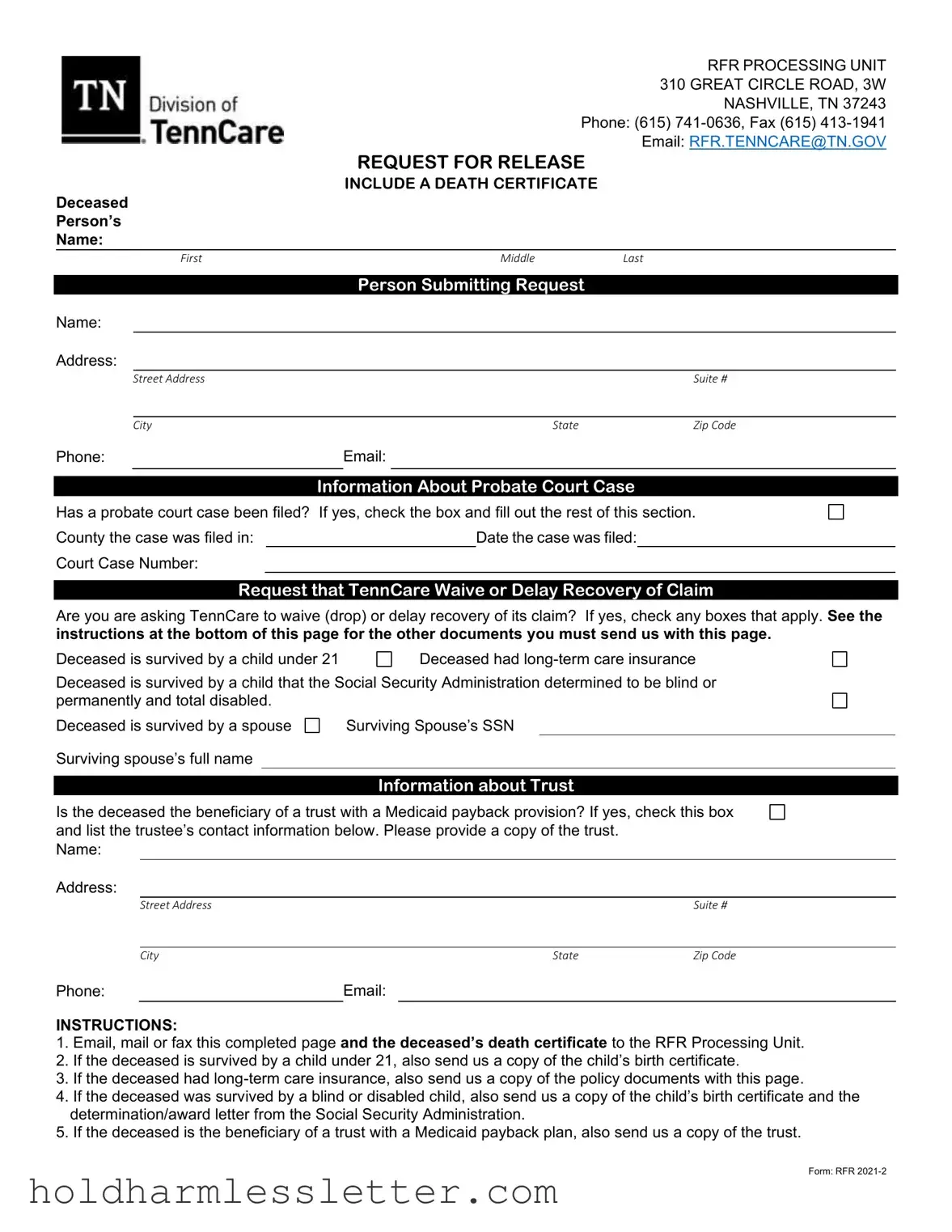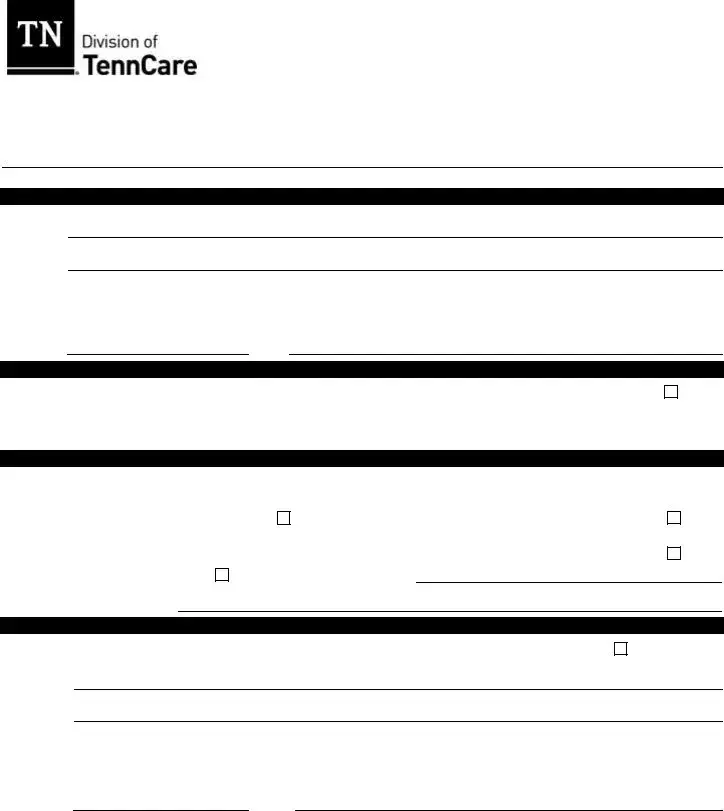What is the purpose of the TennCare Request for Release form?
The TennCare Request for Release form is used to notify TennCare about a deceased person's estate, asking TennCare either to waive (not pursue) or delay the recovery of any claim they might have on the estate. This is often required when the deceased was a recipient of TennCare services, and there might be a claim against their estate for the recovery of those benefits.
What information do I need to provide when submitting a Request for Release?
You need to provide detailed information, including the deceased person's name, the name and contact information of the person submitting the request, details about any probate court case filed, and specifics regarding the request to waive or delay TennCare's recovery claim. Necessary documents such as the deceased's death certificate, the birth certificate of any surviving children under 21, long-term care insurance policy documents, and relevant Social Security Administration determination letters for disabled or blind children must also be submitted.
How do I submit this form and the accompanying documents?
The completed form and all required documents should be emailed, mailed, or faxed to the RFR Processing Unit. The submission details, including email address, fax number, and mailing address, are specified on the form. Ensure to include the deceased's death certificate and any other requested documentation based on your specific request.
Can I request TennCare to waive its claim on the estate?
Yes, you can request TennCare to waive its recovery claim. You must check the relevant box on the form indicating your request and supply any required documents to support your case, such as proof of the deceased's long-term care insurance or documents regarding a surviving child's status as determined by the Social Security Administration.
What should I do if the deceased was the beneficiary of a trust with a Medicaid payback provision?
If the deceased was the beneficiary of such a trust, you need to indicate this by checking the appropriate box on the form and providing the contact information for the trustee. You also need to attach a copy of the trust document. This information will be used by TennCare to assess and process your request accurately.
Who can submit the TennCare Request for Release form?
The request can be submitted by a representative of the deceased's estate or any individual who has a legal interest in the estate or the resolution of TennCare's claim. This includes executors, legal representatives, or family members authorized to act on behalf of the deceased's estate.
What if I need assistance or have questions about completing the form?
If you need help completing the form or have questions about the process, TennCare offers free assistance. You can call their toll-free number for support. Assistance is available in multiple languages, ensuring you can receive help in a language you're comfortable with. Additionally, if you face difficulties because of your race, color, birth place, language, age, disability, religion, or sex, TennCare provides information on how to file a complaint.



